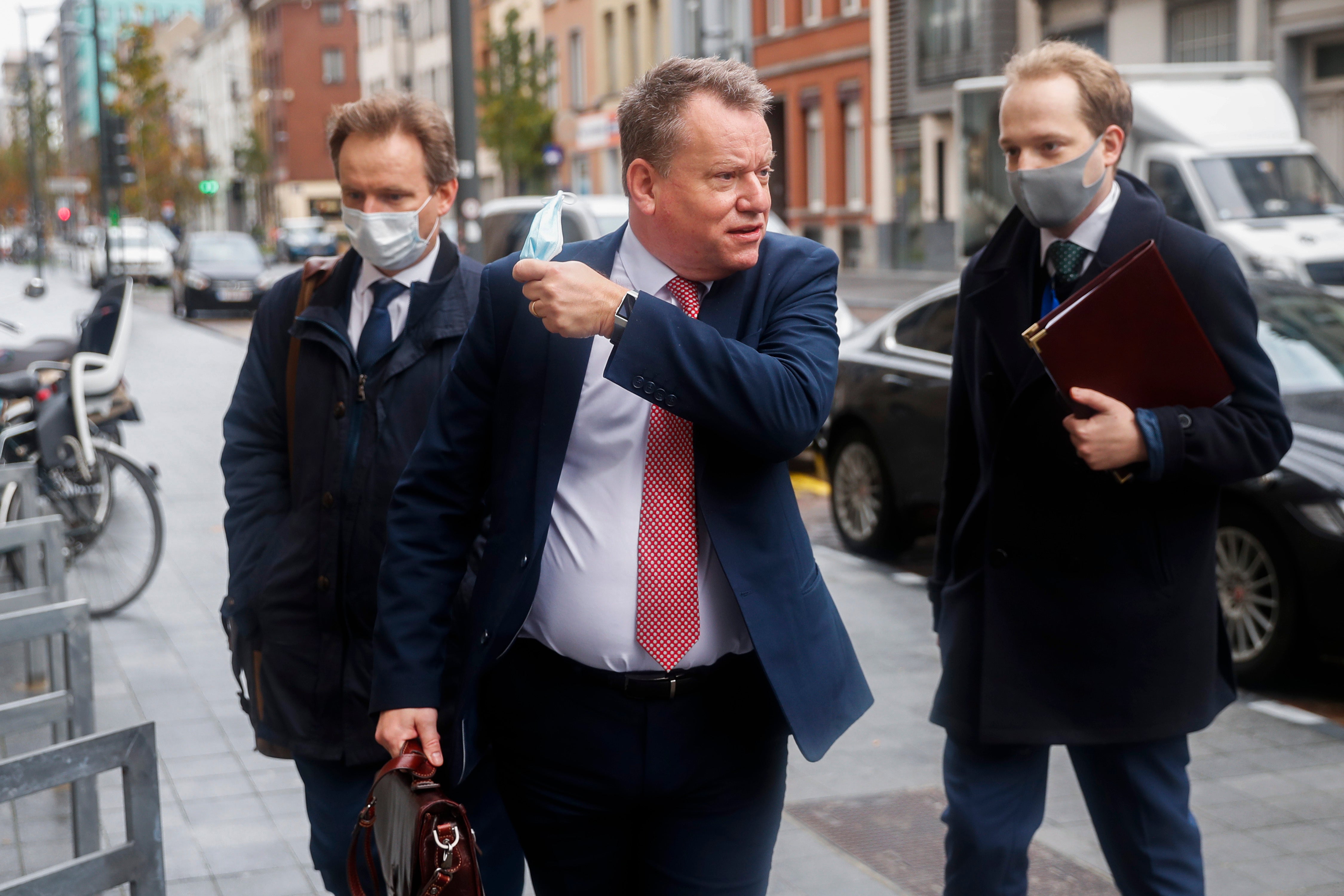Brexit trade talks suspended because of COVID-19 case
The Brexit trade negotiations have been suspended at a crucial stage because an EU negotiator has tested positive for the coronavirus

Your support helps us to tell the story
From reproductive rights to climate change to Big Tech, The Independent is on the ground when the story is developing. Whether it's investigating the financials of Elon Musk's pro-Trump PAC or producing our latest documentary, 'The A Word', which shines a light on the American women fighting for reproductive rights, we know how important it is to parse out the facts from the messaging.
At such a critical moment in US history, we need reporters on the ground. Your donation allows us to keep sending journalists to speak to both sides of the story.
The Independent is trusted by Americans across the entire political spectrum. And unlike many other quality news outlets, we choose not to lock Americans out of our reporting and analysis with paywalls. We believe quality journalism should be available to everyone, paid for by those who can afford it.
Your support makes all the difference.The Brexit trade negotiations have been suspended at a crucial stage because an EU negotiator has tested positive for the coronavirus.
EU chief negotiator Michel Barnier said that together with his U.K. counterpart, David Frost “we have decided to suspend the negotiations at our level for a short period." He added that talks among lower ranking officials would continue.
Any long suspension of talks will make it even tougher for the negotiator to clinch a deal ahead of the Jan. 1 deadline. Frost said in a twitter message that “the health of our teams comes first.”
The medical setback complicates further negotiations that are facing a daunting deadline, since in the time ahead of New Year the EU will need about four weeks to complete the approval process of any deal agreed upon by Frost and Barnier.
Only on Wednesday a top European Union official said that trade talks with the United Kingdom still face “substantial work” that might spill over into next week.
The U.K. left the EU on Jan. 31, but a transition period when EU rules apply to trade and other issues runs until the end of December. Both sides had hoped to get a trade deal by then to save hundreds of thousands of jobs that could be at stake if Brexit amounts to a brutal cliff edge divorce.
But talks have proven exceptionally difficult, with the two sides refusing to budge on three key issues - fisheries, how to check compliance of the deal and standards the U.K. must meet to export into the EU.
The bloc accuses Britain of wanting to retain access to the EU’s lucrative markets, much like any EU country, without agreeing to follow its rules. The EU fears Britain will slash social and environmental standards, and pump state money into U.K. industries, becoming a low-regulation economic rival on the bloc’s doorstep.
Britain says the EU is making unreasonable demands and is failing to treat it as an independent, sovereign state.
If there is no deal, businesses on both sides of the English Channel will face tariffs and other barriers to trade starting on Jan. 1. That would hurt economies on both sides, with the impact falling most heavily on the U.K., whose economy is already reeling under the coronavirus pandemic.